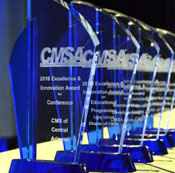 Do you know a great case manager deserving of a special award? Nominate a colleague, your team or even yourself!
The CMSA awards program was established to pay special tribute to individuals, organizations and chapters which have demonstrated distinguished service or advancement to the case management profession.
Explore the nominations process, deadlines and other details below.
|
 CMSA is on Instagram, and in 2018 we're celebrating case managers with a new photo every day! Send us your photo to post or tag your Instagram photo with #365daysofcm (make sure your profile is public so we can see it)!
Follow along @cmsanational; we'll see you there!
|

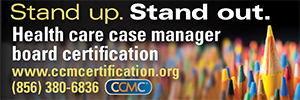
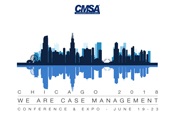 Have you heard? When you make a donation to the CMSA Foundation by January 31, 2018, you'll be entered to win a free conference registration!
Join CMSA in Chicago this June for a week of education, networking and fun. Click below to learn more about the conference and limited time donation offer. Also, remember: early bird pricing is available through March 31 only!
|
 PRIME Education is pleased to provide the following free accredited activities to CMSA members: PRIME Education is pleased to provide the following free accredited activities to CMSA members:
- Heart Failure TOC Pathway
- Heart Failure Webinar Recording
- PROSPER Study Stroke Activity
- Transition of Care Pathways – IPF and PAH
Ready to participate? Visit our educational toolbox: http://www.cmsa.org/educational-toolbox/.
|
 Earlier this year, we announced a partnership with CCMC to continue advancing professional case managers in their career paths. Under the agreement, CMSA members receive a 20 percent discount when applying for the CCM, as well as upon renewal. Those who hold the CCM certification receive a 20 percent discount for CMSA membership.
If you have questions about how to take advantage of your new member benefit, please contact CMSA Client Services at cmsa@cmsa.org or 501-225-2229.
|
 As a 24/7 option for fully digital continuing education, our Educational Resource Library (known as the ERL) is your answer. Included with CMSA membership, the ERL offers approximately 160 online sessions with continuing education credits. CMSA members: take full advantage of this important member benefit, which is included free of charge.
We have six new ethics courses loaded on our ERL, which are pre-approved as CCMC Ethics courses. One of these courses is "The Evolution of End of Life Care: Ethical Implications for Professional Case Management," covering important ethical information for case managers.
Explore more at the link and begin your courses today!
|
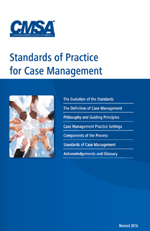
Download CMSA's Standards of Practice for Case Management, 2016 revision, which provides practice guidelines for the case management industry and its diverse stakeholders.The impetus for the 2016 revision of the Standards is the need to emphasize the professional nature of the practice and role of the case manager.
The 2016 Standards contain information about case management including an updated definition, practice settings, roles and responsibilities, case management process, philosophy and guiding principles, as well as the standards and how they are demonstrated.
Download Your Copy
|

 Pat Stricker, RN, M Ed
SVP, Clinical Services
TCS Healthcare Technologies
This is the third article in a series that has explored the Hospital Readmissions Reduction Program (HRRP. The first article, Unplanned Readmissions: Are They Quality Measures or Utilization Measures?, provided an overview of the program and its goals, reviewed expected and achieved cost savings over the past 5 years, and discussed whether the expected readmission rates are really quality measures or utilization measures. The second article, Unplanned Readmissions: Has the Hospital Readmissions Reduction Program (HRRP) Been Successful?, looked at how successful the program has been since its inception, its advantages and disadvantages, and how it may evolve in the future.
As noted in the first two articles, healthcare leaders and organizations are questioning the effectiveness of the HRRP program. Many feel it is a punitive, financial program focused on penalties that have provided cost savings, though much less than expected. They also question whether the expected lower admission rates are really indicators of quality or are really measures to reduce utilization. There is a growing desire to restructure the program into a more positive, financially incentivized program with a focus on quality and improved clinical outcomes. While the program still needs to result in cost savings, those savings should not be the main driving force. They feel the current HRRP program should be looked at as a learning experience and "bridge" to get from the fee-for-service payments to value-based or bundled payment initiatives. Using effective, proven strategies and best practices, the program should be able to evolve into one focused on quality and improved clinical outcomes that, in turn, will achieve desired cost savings.
|


by Catherine M. Mullahy, RN, BS, CRRN, CCM and Jeanne Boling, MSN, CRRN, CDMS, CCM
While we (the authors) have been involved in one aspect or another of case management, from the clinical and entrepreneurial sides to education and training, for over four decades, we weren’t around when case management started. That was back in the mid-1800s. Then, the forerunner to what we call case management today consisted of providing healthcare services to the nation’s most needy primarily through a state agency, specifically the Massachusetts Board of Charities. Of course, much has changed for case managers from those earliest days when "case managers" were largely coordinators of public health services, record keepers and, oh yes, patient advocates. Needless to say, the opportunities for advancement and financial reward for these case managers were minimal as were the education, training and credentials required. As our nation’s public health programs developed (e.g., The Medicare and Medicaid Program in 1965), so too did the profession of case management. Subsequent legislation designed to facilitate the delivery of better healthcare to Americans continued to ramp up the need for case management provided by skilled, qualified professionals.
Most recently, we’ve seen the "Patient Protection and Affordable Care Act of 2010" ("ACA") set in motion higher exposures for not having effective case management in place. This has been particularly true for providers whose failures to manage their patients’ transition plans resulting in preventable readmissions, earn them lower Medicare reimbursements. Fast forward to 2017 and what it means today to be a case manager. Let’s start by saying, the opportunities are as wide open and long as the journey taken by our predecessors starting back around the turn of the 19th century.
|
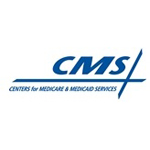 Will support states helping Medicaid beneficiaries improve well-being and achieve self-sufficiency Will support states helping Medicaid beneficiaries improve well-being and achieve self-sufficiency
CMS, on January 11, announced new guidance that will support state efforts to improve Medicaid enrollee health outcomes by incentivizing community engagement among able-bodied, working-age Medicaid beneficiaries. The policy responds to numerous state requests to test programs through Medicaid demonstration projects under which work or participation in other community engagement activities – including skills training, education, job search, volunteering or caregiving – would be a condition for Medicaid eligibility for able-bodied, working-age adults. This would exclude individuals eligible for Medicaid due to a disability, elderly beneficiaries, children, and pregnant women.
The new policy guidance sent to states is intended to help them design demonstration projects that promote the objectives of the Medicaid program and are consistent with federal statutory requirements. To achieve the objectives of Medicaid, state programs should be designed to promote better physical and mental health.
Source: Centers for Medicare & Medicaid Services
|
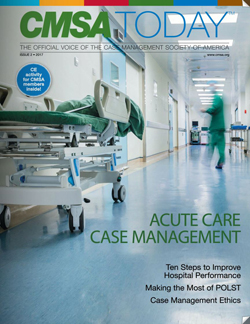 CMSA Today™—the official magazine of the Case Management Society of America—is the magazine for case managers. We are committed to providing case management knowledge, perspectives and news to case managers in all sectors of the profession. To facilitate that mission, we accept and consider: CMSA Today™—the official magazine of the Case Management Society of America—is the magazine for case managers. We are committed to providing case management knowledge, perspectives and news to case managers in all sectors of the profession. To facilitate that mission, we accept and consider:
- Original articles written by case managers of all healthcare backgrounds;
- Expertly prepared articles from professional writers—whether medical
writers or experienced generalists—on case management topics;
- Feature articles, column material, and news about case management
trends and issues, as well as about CMSA chapters and their activities;
- and personal, member-generated items considered nontraditional for a
professional-association publication as poems, remembrances and similar
sorts of content.
Consider sharing your knowledge by writing and submitting an article! Click below to learn more.
Learn More
|
|
| |
|

